Managing a property in Jupiter, Florida, or anywhere else, comes with its set of challenges. One of the most common and critical issues landlords face is dealing with tenant complaints. Complaints can range from minor inconveniences to serious concerns, and how you handle them can significantly impact your reputation as a landlord and the satisfaction of your tenants. This section will explore the nature of tenant complaints, the common issues tenants face, and why handling these complaints properly is vital to maintaining a successful rental business.
Why Tenant Complaints Matter
Tenant complaints should never be dismissed as just a nuisance. Ignoring or mishandling complaints can lead to high turnover rates, legal issues, and loss of revenue. On the other hand, addressing complaints promptly and professionally can help build a positive relationship with tenants, retain them for the long term, and keep your property in good condition.
Tenant complaints are an opportunity to assess how well your property is maintained and whether there are areas for improvement. When managed correctly, complaints can serve as a valuable feedback loop that helps enhance the quality of your rental property and the experience for your tenants.
Common Tenant Complaints and How to Address Them
As a landlord in Jupiter, you’re likely to encounter a variety of tenant complaints. Understanding these complaints and knowing how to address them effectively can make all the difference in how smoothly your rental business runs.
Maintenance and Repairs
One of the most common complaints tenants have is related to the condition of the property. This could involve issues such as broken appliances, plumbing problems, or heating and cooling system malfunctions. It’s essential for landlords to understand that maintenance and repairs are not just a matter of convenience for tenants; they are often legally required to keep the property habitable.
Actionable Advice:
- Set clear expectations with tenants about how quickly they can expect repairs to be made.
- Create a reliable system for tenants to submit maintenance requests, such as an online portal or a designated phone number.
- Prioritize urgent repairs, such as plumbing issues or broken heating systems, and address less critical issues promptly but without delay.
Noise Complaints
Noise is another common issue that tenants frequently complain about. This could range from loud neighbors to noises in the building’s infrastructure. Noise complaints can be particularly difficult for landlords to manage, as they often require mediation between tenants or dealing with external factors that are outside your control.
Actionable Advice:
- Include a noise policy in your lease agreement to set expectations about acceptable noise levels.
- Address the complaint as soon as possible by investigating the source of the noise and speaking with the responsible party.
- Encourage tenants to communicate directly with their neighbors about minor issues before escalating the situation to you.
Security and Safety Concerns
Security is a top priority for many tenants, and concerns about safety can lead to serious complaints if not addressed. These complaints can range from broken locks, poorly lit areas, or the presence of pests. For tenants, the perception of an unsafe environment can lead to dissatisfaction and even legal actions if the landlord fails to respond adequately.
Actionable Advice:
- Regularly inspect the property and perform safety checks to ensure that locks, lighting, and other security features are in good working order.
- Address tenant concerns about safety with empathy, even if the issues seem minor. Ensure that their concerns are documented and acted upon quickly.
- Invest in security systems, such as cameras or upgraded lighting, if necessary, to help improve the overall safety of the property.
Issues with Neighbors
In multi-family housing units, complaints about neighbors are commonplace. This can involve disputes over parking, shared spaces, or general behavior. While some issues may be outside your control, it’s important to address tenant concerns promptly to prevent escalation.
Actionable Advice:
- Provide tenants with clear guidelines for handling neighbor disputes.
- Offer to mediate when necessary, acting as an impartial party to resolve the conflict.
- Encourage tenants to communicate politely with their neighbors before involving you as the landlord. If the issue persists, take appropriate action to resolve the matter.
Rent and Payment Issues
Disputes over rent payments can be a major source of frustration for both landlords and tenants. This can include tenants failing to pay on time, not understanding the rent payment terms, or disputes over late fees and payment methods.
Actionable Advice:
- Ensure that the rent collection process is straightforward and transparent. Clearly outline payment deadlines and acceptable methods of payment in the lease agreement.
- Offer flexibility, such as online payments or reminders, to make it easier for tenants to pay on time.
- If a tenant is consistently late on payments, address the issue promptly to avoid financial losses, while considering payment plans if appropriate.
Establishing Effective Communication with Tenants
Effective communication is the cornerstone of successful property management. Tenants need to feel that they can reach out to you with concerns, and landlords must be responsive and professional in their interactions. Establishing clear lines of communication from the outset can prevent many tenant complaints before they even arise.
Open Communication Channels
A tenant should have no trouble reaching you when they need assistance. If you’re difficult to contact, tenants may feel frustrated and more inclined to lodge complaints. Whether you use a phone number, email, or an online platform for communication, ensure that you are available and responsive to your tenants’ needs.
Actionable Advice:
- Clearly communicate how tenants can contact you for different issues.
- Provide multiple communication channels (email, phone, online portals) so tenants can choose their preferred method.
- Respond to inquiries in a timely manner. The quicker you acknowledge a tenant’s concern, the more satisfied they will be with your service.
Be Proactive in Addressing Concerns
One of the most effective ways to prevent complaints is to be proactive. Regularly inspect your property and address potential issues before they turn into tenant complaints. A proactive approach not only helps in maintaining the property but also builds trust with tenants, showing them that you care about their living conditions.
Actionable Advice:
- Conduct regular property inspections to identify maintenance issues before tenants report them.
- Keep an eye on common tenant complaints in the area and address these proactively. For example, if noise is a known issue, consider soundproofing shared walls or installing better insulation.
- Keep tenants informed about the steps you are taking to resolve issues, even if they haven’t yet formally complained.
Documenting and Tracking Complaints
Proper documentation and tracking are essential for handling tenant complaints effectively. Not only does this help ensure that you address each issue, but it also provides a record of the steps taken should the situation escalate or lead to legal action.
Actionable Advice:
- Keep a record of all complaints and the actions taken to resolve them.
- Use a tenant management system to log complaints, track their progress, and set reminders for follow-up.
- Make sure all communication, whether written or verbal, is documented to protect yourself legally and show that you acted in good faith.

Get a Free Rental Analysis
Want to know how much your home will rent for? We’ll send you a free rental report!
Best Practices for Resolving Complex Tenant Complaints
Not all tenant complaints are straightforward. Some issues are more complex and require a detailed, strategic approach to resolve. These types of complaints may involve multiple parties, legal nuances, or underlying problems that have built up over time. This section will focus on best practices for handling more complicated complaints, including tips for conflict resolution, involving legal professionals when necessary, and maintaining a respectful, professional environment.
Conflict Resolution Strategies
When tenant complaints become more serious or involve disputes between tenants or other parties, conflict resolution skills become essential. As a landlord, it’s important to remain neutral, calm, and professional during these situations. Handling disputes effectively can not only resolve the issue but also strengthen your relationship with tenants and prevent future conflicts.
Mediation Between Tenants
In multi-family rental properties, disputes between tenants are common. These may include disagreements over noise, shared spaces, or even personal conflicts. As the landlord, it’s your responsibility to mediate the situation if tenants cannot come to an agreement on their own.
Actionable Advice:
- Listen to both parties involved in the dispute without taking sides.
- Encourage open communication and ensure that both tenants understand each other’s concerns.
- Offer practical solutions or compromises, such as adjusting quiet hours, assigning specific parking spaces, or improving shared space policies.
- If the dispute persists, consider involving a neutral third-party mediator to facilitate a resolution.
Setting Clear Boundaries
While it’s important to address tenant complaints, it’s equally crucial to set boundaries. Tenants may sometimes expect you to intervene in personal issues that fall outside of your responsibilities. Establishing and enforcing clear boundaries about what is and isn’t your responsibility can help you avoid unnecessary stress and prevent overreach in resolving tenant disputes.
Actionable Advice:
- Ensure that your lease agreement clearly outlines the landlord’s role and responsibilities.
- Communicate to tenants that certain issues, such as personal disputes between neighbors, are not your responsibility to resolve unless they impact the property or violate the lease.
- Encourage tenants to resolve minor issues on their own before approaching you for assistance.
Escalating Complaints and Legal Considerations
Some tenant complaints may escalate to a level where legal action or outside intervention is required. Understanding when and how to involve legal professionals is vital for protecting both your interests and the rights of your tenants. It’s essential to know the local laws and regulations that govern tenant rights in Jupiter, Florida, and to act accordingly when a situation calls for formal legal proceedings.
Understanding Florida Tenant Laws
Florida has specific laws that govern landlord-tenant relationships, including rules regarding habitability, repairs, eviction procedures, and tenant rights. Familiarity with these laws will help you navigate complaints effectively and ensure that you handle issues legally and ethically.
Actionable Advice:
- Familiarize yourself with Florida’s Residential Landlord and Tenant Act, which covers essential aspects of rental property management.
- Stay informed about local regulations in Jupiter that might affect property management, such as rules for short-term rentals, noise ordinances, or zoning laws.
- Consult with an attorney specializing in real estate or landlord-tenant law if you have questions about legal implications related to tenant complaints.
The Role of Legal Professionals in Tenant Disputes
In some cases, tenant complaints may require you to involve legal professionals. This is particularly true when tenants threaten to withhold rent, file lawsuits, or take other actions that could have serious financial or legal consequences. Consulting with an attorney can help you understand your rights, obligations, and the best course of action.
Actionable Advice:
- If a tenant is threatening legal action or filing formal complaints, consult with a real estate attorney to understand your options.
- Document all communications with tenants and any actions taken to resolve the issue. Having a clear record of events can protect you in case the situation escalates into a legal dispute.
- Avoid retaliating against tenants for lodging complaints or exercising their legal rights. Retaliation can lead to legal consequences and damage your reputation as a landlord.
Handling Rent Disputes Legally
Rent disputes are one of the most common reasons tenants may take legal action. Tenants may withhold rent due to unaddressed maintenance issues, disputes over charges, or miscommunication about payment terms. It’s essential to address rent-related complaints promptly and ensure that your actions comply with Florida’s laws regarding rent collection and tenant rights.
Actionable Advice:
- Never attempt to evict a tenant or change the terms of their lease without following the proper legal procedures.
- If tenants withhold rent, document the issue and provide a clear explanation of how the rent payments should be handled, including any late fees or other charges.
- Consider offering payment plans if tenants are facing financial difficulties. Keeping lines of communication open can prevent a dispute from escalating into a legal issue.
Implementing Proactive Measures to Prevent Future Complaints
While resolving complaints is essential, proactive measures can significantly reduce the likelihood of complaints arising in the first place. By investing in preventive measures, you can keep your tenants satisfied and minimize the time and resources spent addressing issues.
Property Inspections and Maintenance
Regular property inspections are an essential part of proactive property management. By keeping your property in good condition, you can prevent most maintenance-related complaints from tenants. Additionally, routine inspections can help you identify potential problems before they become major issues, allowing you to address them before tenants notice.
Actionable Advice:
- Conduct periodic property inspections to check for potential maintenance issues and ensure that everything is functioning properly.
- Stay ahead of seasonal maintenance needs, such as air conditioning inspections in the summer and plumbing checks in the winter.
- Schedule regular pest control services to prevent infestations before they occur, as this is a common complaint among tenants.
- Keep tenants informed about upcoming inspections and maintenance schedules to set expectations and avoid surprises.
Creating a Clear and Fair Lease Agreement
A well-drafted lease agreement is one of the most effective tools for preventing tenant complaints. By outlining the rules, expectations, and responsibilities of both parties, you create a clear framework that helps avoid misunderstandings and disputes.
Actionable Advice:
- Ensure that your lease agreement covers all essential topics, such as rent payment terms, maintenance responsibilities, noise policies, and the process for filing complaints.
- Make sure the lease agreement is easy to understand and free from ambiguity. If tenants don’t understand the terms, they may become frustrated and file complaints.
- Include specific procedures for handling tenant complaints, so tenants know how to report issues and understand the steps you will take to resolve them.
Building a Positive Landlord-Tenant Relationship
A positive landlord-tenant relationship is essential for minimizing complaints. When tenants feel respected, heard, and valued, they are more likely to address concerns with you directly and cooperate when issues arise.
Actionable Advice:
- Be responsive and professional in all interactions with tenants, even if the issue seems minor.
- Regularly check in with tenants to ensure that they are satisfied with their living conditions and address any potential concerns early on.
- Foster a sense of community by hosting events or providing tenants with information about local amenities and services. A good rapport can lead to happier tenants who are less likely to file complaints.

Maintaining Long-Term Tenant Satisfaction
A significant portion of managing rental properties successfully involves maintaining long-term tenant satisfaction. Happy tenants are more likely to stay longer, renew leases, and treat your property with care, reducing turnover and the associated costs. This section will offer tips for creating an environment that fosters tenant satisfaction, which can reduce complaints and improve the overall quality of your rental business.
Building Trust and Respectful Relationships
One of the most effective ways to maintain long-term tenant satisfaction is by building a strong, trusting relationship with your tenants. Tenants who feel respected and valued are more likely to engage in open communication and resolve issues cooperatively, which can prevent complaints from escalating.
Open and Transparent Communication
Effective communication is essential to any successful landlord-tenant relationship. Be clear about your expectations, be available for inquiries, and respond promptly to concerns.
Actionable Advice:
- Maintain regular communication with your tenants through email, phone calls, or even a tenant portal if available. Make sure tenants know how to reach you when they need assistance.
- Be clear about your policies and expectations upfront, particularly around rent payments, maintenance requests, and tenant responsibilities.
- Address concerns in a timely manner and follow up to ensure the tenant feels their issue has been resolved satisfactorily.
- Encourage tenants to reach out with any concerns before they become major problems. By addressing small issues early, you can prevent them from escalating.
Professionalism in All Interactions
Maintaining a professional demeanor in all interactions with tenants helps to foster a respectful atmosphere. Regardless of the nature of the complaint or issue, always remain polite, calm, and solution-focused.
Actionable Advice:
- Keep a calm and neutral tone, especially when addressing complaints or disputes. Avoid becoming defensive or emotional, as this can lead to further tension.
- Show empathy when tenants experience genuine issues, such as maintenance problems, and reassure them that their concerns are important.
- Be fair and consistent in your treatment of all tenants, ensuring that everyone is held to the same standards and expectations.
Offering Incentives for Lease Renewals
Keeping tenants for the long term benefits both parties. Not only does it save you the time and expense of finding new tenants, but it also provides tenants with stability and predictability in their living situation. Offering incentives for lease renewals is a great way to encourage tenants to stay.
Rent Discounts or Gift Cards
Offering small rent discounts, gift cards, or other incentives can show tenants that you value their commitment and encourage them to stay.
Actionable Advice:
- Consider offering a rent reduction for tenants who renew their leases for a longer period, such as an additional 6 months or a year.
- Providing a gift card to a local business or service, such as a restaurant or home improvement store, can also help build goodwill.
- Be sure to communicate these incentives early, so tenants have ample time to consider them when it comes time to renew their lease.
Improved Property Amenities
Upgrading or adding amenities can enhance tenant satisfaction and encourage them to stay longer. Adding or improving features such as updated appliances, enhanced security, or communal spaces can increase a tenant’s sense of value and improve their quality of life.
Actionable Advice:
- Regularly assess the condition and functionality of the amenities in your rental properties. If certain items, such as appliances, heating systems, or air conditioning units, are outdated or frequently malfunctioning, consider upgrading them.
- Pay attention to tenant feedback when it comes to common areas like laundry rooms, parking, or outdoor spaces. Sometimes, even small changes such as improved lighting or new landscaping can make a significant difference in tenant satisfaction.
Addressing Tenant Concerns Proactively
While resolving complaints when they arise is important, preventing complaints in the first place can save you significant time and effort. Proactive measures allow you to address issues before they become major sources of frustration for tenants.
Routine Property Inspections
Routine property inspections help you identify issues before tenants notice or report them. Inspections give you an opportunity to perform preventive maintenance, address safety concerns, and ensure that the property is being cared for as per the terms of the lease.
Actionable Advice:
- Conduct regular inspections, ideally every six months or annually, to check the condition of the property.
- Use inspections as an opportunity to address issues like plumbing problems, pest infestations, or wear-and-tear issues with appliances.
- Keep tenants informed about inspection schedules in advance, ensuring they know when and why the inspections are happening.
Responding to Maintenance Requests Promptly
Tenants are most likely to file complaints when their maintenance requests are not handled promptly. By ensuring that repairs and maintenance requests are addressed as quickly as possible, you can avoid complaints and increase tenant satisfaction.
Actionable Advice:
- Create a clear system for tenants to submit maintenance requests, whether through an online portal, email, or a phone line.
- Prioritize requests based on urgency, such as fixing a leaky roof or a broken HVAC system, which could significantly affect tenants’ comfort and safety.
- Regularly follow up with tenants to ensure that the repairs were completed to their satisfaction. This demonstrates your commitment to maintaining a high standard for the property.
Preventing Common Complaints
By understanding the most common complaints that landlords face and taking steps to prevent them, you can create a more positive living environment for your tenants. Here are a few common issues and solutions that can help minimize complaints.
Noise Complaints
Noise issues are among the most common complaints in multi-family rental properties. Whether it’s loud neighbors or construction noise, tenants are often sensitive to disturbances that affect their comfort and peace of mind.
Actionable Advice:
- Clearly define noise policies in your lease agreements, including quiet hours and acceptable noise levels.
- Respond quickly to noise complaints by investigating the issue and resolving it according to the terms of the lease.
- Offer solutions such as soundproofing or relocating tenants who experience ongoing disturbances due to noise.
Pest Control Issues
Pests such as rodents, insects, or other wildlife can cause significant discomfort for tenants and can lead to complaints if not addressed quickly.
Actionable Advice:
- Implement a pest control plan for regular inspections and preventive treatments.
- If tenants report pest issues, take immediate action to resolve the problem, such as calling in a pest control professional and notifying tenants of the steps being taken.
- Provide tenants with clear instructions on how to prevent pests, such as keeping food sealed and taking out the trash regularly.
Final Thoughts
Successfully handling tenant complaints requires a combination of clear communication, fair practices, proactive maintenance, and a genuine commitment to tenant satisfaction. By implementing these strategies, you can address tenant issues quickly, reduce complaints, and maintain a positive relationship with your tenants. This, in turn, will contribute to the success and long-term profitability of your rental business in Jupiter, Florida.
Suggested Helpful links:
How to Build Strong Tenant Relationships in Jupiter Long-Term Rentals
How Property Managers Handle Fair Housing Compliance and Protect Landlords from Lawsuits
Avoid Legal Pitfalls: How Property Managers Keep Your Maintenance Compliant and Lawsuit-Free



